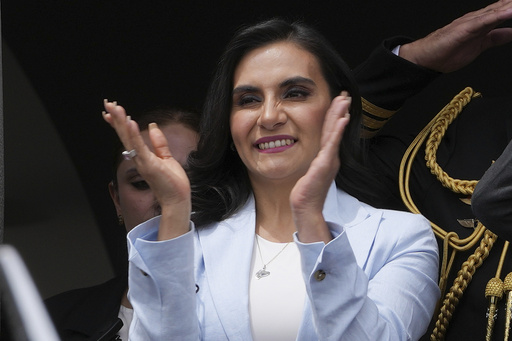
QUITO — Ecuador’s Vice President Veronica Abad faced a suspension of 150 days on Saturday, as officials accused her of “unjustified abandonment” of her duties. This suspension emerges amidst ongoing tensions between Abad and President Daniel Noboa, a feud that could significantly impact the upcoming elections in February.
Abad’s suspension, which is without remuneration, began at midnight, as shared by her legal representative Dominique Dávila. Dávila characterized the action as “extremely serious” and expressed doubts about its legal validity.
The Ministry of Foreign Affairs had accused Abad of failing to comply with an order issued in September which instructed her to leave her post in Israel—where she also acts as ambassador—and relocate to Turkey temporarily due to an ongoing conflict in the region. She reported for duty eight days later than commanded.
Abad defended her actions by stating that she felt “not properly prepared” for travel to Turkey and noted that the government had suggested she would need to leave her children in Israel to undertake this journey alone.
The tensions between Abad and Noboa have escalated over the years, marking a complicated working relationship. In August, Abad took the step of filing a legal complaint against Noboa and other officials, accusing them of gender-based violence.
This suspension marks the second disciplinary action against Abad within a week. Earlier, on Tuesday, the Electoral Disputes Tribunal in Ecuador imposed an $8,500 fine on her for engaging in premature campaign activities during her previous candidacy for mayor of Cuenca earlier this year.
Abad has suggested that these actions stem from political maneuvers designed to coerce her resignation, while Noboa has labeled her as “disloyal.” Dávila has argued that the recent suspension appears to be yet another strategic move to hinder Abad’s potential ascension to the presidency, asserting that they intend to contest this decision.
The implications of Abad’s situation are particularly significant for Noboa, who is eyeing a reelection campaign for February 2025. Experts note that if he does take a leave of absence to pursue the campaign, Abad would assume the presidency. However, the recent sanctions against her may obstruct the possibility of that transition, according to constitutional lawyer André Benavides. He noted that while the legal foundation for the suspension seems weak, any appeal process would likely prolong the situation beyond the duration of the suspension itself.
